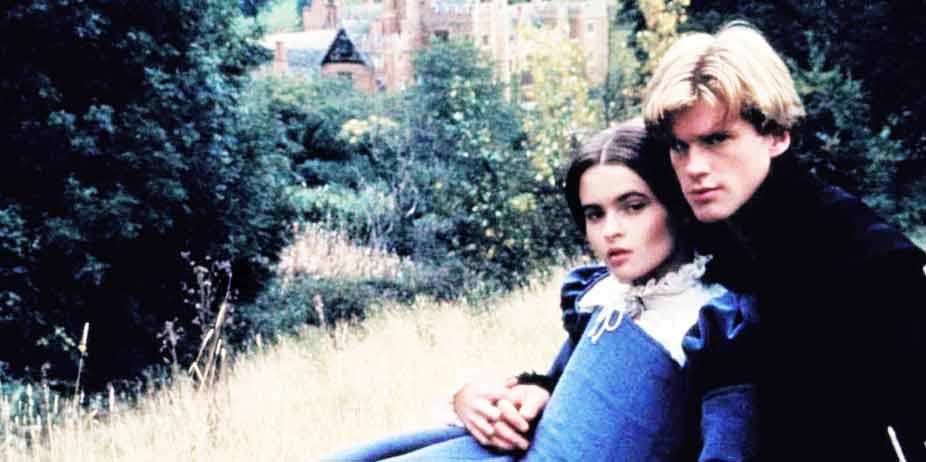Lady Jane (1986)
Few movies touch my heart as this one did. The first time I ever saw it, I was too young to fully appreciate the power behind its message of self-sacrifice. It was only recently that I chose to re-watch it after renewing my fascination with the kings and queens of the era. Full of beautiful and understated performances, and a conclusion that will bring tears to your eyes and a tremor to your heart, Lady Jane is a must-see for those of faith.
In the late fifteen hundreds, England's idle rich were anything but idle. It was a time of tyranny and deception, bloodshed and persecution, in which one young woman stood at the threshold of greatness, and would make her choice between life in submission, or a death for what she believed about God. Lady Jane Grey (Helena Bonham-Carter) lives a very turbulent life. An astonishingly brilliant little girl who reads Aristotle in Greek, she's despised by her nasty mother (Sara Kestelman) and overpowering father (Patrick Stewart) but smiled on by her cousin, King Edward of England (Warren Saire). Only a few months older than she is, Edward's interests tend slightly toward budding romance, an attraction encouraged by most of the members of the court, as Jane is a devout and outspoken Protestant.
When John Dudley (John Wood) discovers that Edward has not long to live, the plan of marriage takes a dramatic turn to one of battling for the succession. By most rights, it belongs to Princess Mary (Jane Lapotaire), but she is a staunch Catholic and the court of ministers do not desire her to come to power. In a greedy attempt to have influence over the throne, he convinces Edward to make Jane his successor, and arranges a marriage for her to his youngest son (Cary Elwes). Jane will have none of it, and it is only when Edward approaches her and gently asks her to wed Guilford that she consents. At first, their marriage is nothing short of a disaster, two young people thrust into one another's lives, but through turbulence and disagreements, they discover common ground, that they wish for a better England, never knowing that it will be only for nine glorious days that their brilliant light will shine amidst the darkness.
The remarkable thing about this film is its emphasis on faith. You might scoff at the notion because it's obvious that a movie about Jane Grey would contain aspects of fervent religion, but that is not always the case. She is passionate about what she believes, to the point of expressing Protestant philosophy quite emphatically when questioned. If you ever wanted to know the basic differences between Catholic and Protestant beliefs in that particular age, she spells them out for you. She is also willing to die for what she believes, and ultimately does. Furthermore, she is more concerned about the state of her executioner's priest than she is about her own end, and because of this there are several magnificent conversations between her and Gilford about heaven and eternal life. If nothing else, it is a great starting point for a discussion over the differences between the two branches of faith, and whether or not Jane could have altered her own fate through a simple confession.
For the most part there isn't an enormous amount of content, but what there is, is both out of place and troubling because of the age of those involved. Gilford is shown in a house of prostitution and lies to Jane that he was intimate with one of the girls, when in reality he fell asleep of drink. The marriage is not immediately consummated, and when they do become intimate, we merely see them curled up, bare-shouldered, in bed together, where Jane cries happy tears to know that she was his "first." The worst of it is two scenes of nudity. A lot is kept in shadow but details are rather obvious, and we catch a glimpse of Gilford's backside when he rises from the bed. There are two on-screen beheadings, but we see nothing except the axe coming down. Jane is mercilessly beaten by her mother. Guilford uses the expression "God's teeth!"
Historically, the basic plot structure is reasonable but far from accurate. I did not mind because it allowed Jane and Gilford to have a love story, which prevents the film from being too melancholy, what with Jane being whipped into submission and the eventual downfall of her monarchy. Considering the actors were so young in their professions at the time, they turn in remarkable performances and the film is filled with lovely solitary moments that make them both likable to such an extent that as it builds toward the inevitable, you feel the lump gathering in your throat. I also enjoyed their depiction of Mary, not so much heartless as heartbroken. It's a fascinating and touching film that for older audiences, deserves a viewing.

